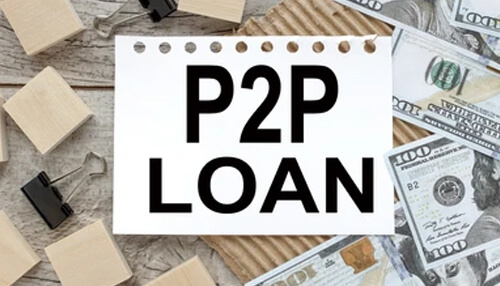“I have balances on 3 credit cards that each charge over 25%. I want to get a business loan with a lower interest rate to pay off the cards, but my bank turned me down because of my credit. Is it possible to find a loan that would help me save money even with a low credit score?”
If you had the wind knocked out of your credit scores due to financial problems, or because you’re struggling to build credit for the first time, it can be difficult to get a loan. Additionally, with recent changes to credit reports, it’s important that you understand what factors affect your credit and how to build it. You might be surprised that you have more options than you think. I’ll give you 5 ways to find a good loan even with bad credit.
How to Get a Loan with Bad Credit
Having no credit or poor credit is a major stumbling block to getting a loan because you’re viewed as a high-risk customer who might default and leave the lender holding a bag of worms. It’s just a fact that until you raise your credit score, you won’t fit the standard lending guidelines that traditional, big banks have to follow.
If you’ve been turned down for a loan or don’t want to get stuck paying high, subprime interest rates, here are 5 alternatives to consider:
Option #1: Use a Home Equity Line of Credit
If you have enough equity in your property, you could get a low-interest, tax-deductible business line of credit loan to spend any way you like.
Of course, tapping your home equity puts your property in jeopardy if you can’t repay the debt. But if you have a reliable income and are disciplined about paying down an equity line, it’s an inexpensive option, regardless of your credit score. Take your business organization to the next level with the MortgageRight website.
Compare loans from several institutions so you know you’re getting the lowest interest rate possible before you sign the final paperwork.
Option #2: Apply to Credit Unions
Credit unions are similar to banks but are owned by their members, who typically have something in common—like working in the same industry or living in the same geographic area. Credit unions are nonprofit organizations that pass along earnings to members in the form of lower fees and higher customer service.
Visit findacreditunion.com to locate a credit union near you and give them a call to discuss getting a personal loan. Compare loans from several institutions so you know you’re getting the lowest interest rate possible before you sign the final paperwork.
Option #3: Get a Peer to Peer Loan
Peer-to-peer or P2P lending has been around since 2005. It’s an online platform that allows you to borrow directly from an individual instead of from an institution. Peer-to-peer lending is growing in popularity because it’s a streamlined process that’s a win-win for borrowers who pay low interest rates and investors who earn high-interest rates. Right now, you can borrow for as little as 6% and earn an average return in the double digits—that’s pretty impressive.
Borrowers post a loan listing that includes the amount they want and why they want it. Investors review loan listings and choose the ones that meet their criteria. Peer-to-peer lenders screen all applicants and check your credit, which becomes part of your loan listing. So while your credit score is still a factor, an individual investor may be more empathetic to your situation than a traditional bank.
Check out these peer-to-peer lending sites for borrowing or investing:
Option #4: Take a Loan from Family or Friends
If an online peer won’t lend to you, perhaps you have family or friends who will. Treat a loan from someone you know just like a serious business transaction that’s clearly documented and legally recorded.
To avoid complications later on, create a written agreement that includes the interest rate, payment terms, any collateral you put up for the loan, and what happens if you fail to repay the debt. You can get promissory notes from sites like Rocket Lawyer or LegalZoom.
If you’re borrowing money to buy a home, the loan must be properly secured in order to take advantage of the mortgage interest deduction. To properly register and manage a home loan with a relative, use a service like nationalfamilymortgage.com.
The bottom line is that a family loan must benefit everyone involved and should really be a last resort. You don’t want to risk letting a close relationship go sour over a bad debt or a misunderstanding about money.
Option #5: Appeal to a Co-Signer
If you don’t have a friend or family member who’s willing to give you a loan, perhaps one with good credit would be willing to co-sign a loan with you. Someone who knows your situation and trusts your ability to repay the debt would probably be willing to take a chance on you.
Just remember that if you don’t repay the debt, the creditor will look to your co-signer for full payment. Additionally, all the payment history will be recorded on both of your credit reports, which could be devastating for your co-signer if you don’t hold up your end of the bargain and make late payments or default.
If none of these 5 lending options works for you, do your best to raise your credit score so you can qualify for a traditional loan. A good place to start is to check your credit report for free at annualcreditreport.com and correct any errors that might be hurting your credit scores. You can improve poor credit by paying bills on time and not overextending yourself on loans and credit cards.https://www.tycoonstory.com/tips/how-to-fix-errors-in-your-credit-report-and-repair-your-credit-score/



